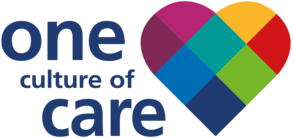Swallowing Awareness Day is an opportunity to raise awareness of how Speech and Language Therapists (SLTs) help people living with eating, drinking and swallowing difficulties.
Eating, drinking and swallowing is an essential part of most people’s day and is often taken for granted, but for some people it is not that easy. Eating, drinking and swallowing difficulties, also known as dysphagia, can occur at any stage of life, can affect a person’s quality of life, lead to other health complications and even have life-threatening consequences.
As dysphagia often happens at the same time as other health conditions, it is difficult to be certain of the prevalence rate. However, research has found the following rates of prevalence and incidence of dysphagia is:
- Between 50-75% of nursing home residents
- Between 50-60% of head and neck cancer survivors
- Between 40-78% of stroke survivors – of those with initial dysphagia following stroke, 76% will remain with a moderate to severe dysphagia and 15% with profound dysphagia
- 48% of patients undergoing cervical discectomy and fusion
- 33% of the people with multiple sclerosis
- 27% of those with chronic obstructive pulmonary disease
- 10% of acutely hospitalised older people
- 5% of adults with a learning disability, 5% of community-based individuals with learning disabilities and 36% of hospital-based individuals
Our Speech and Language Therapists support infants, children and adults who have dysphagia, to eat, drink and swallow safely by:
- Helping people regain their swallowing through exercises, techniques and positioning
- Promoting patient safety through modifying the texture of food and fluids, reducing the risk of malnutrition, dehydration and choking
- Promoting quality of life, taking into account individual's and their families preferences and beliefs, and helping them adjust to living with swallowing difficulties
- Working with other healthcare colleagues, particularly dietitians, to optimise nutrition and hydration
- Educating and training others to identify, assess and manage dysphagia, including families and the wider health and care workforce.
If you want to learn more, you can contact our children's SLT team on 01422 261 340 or our adult's SLT team on 01422 224 246


